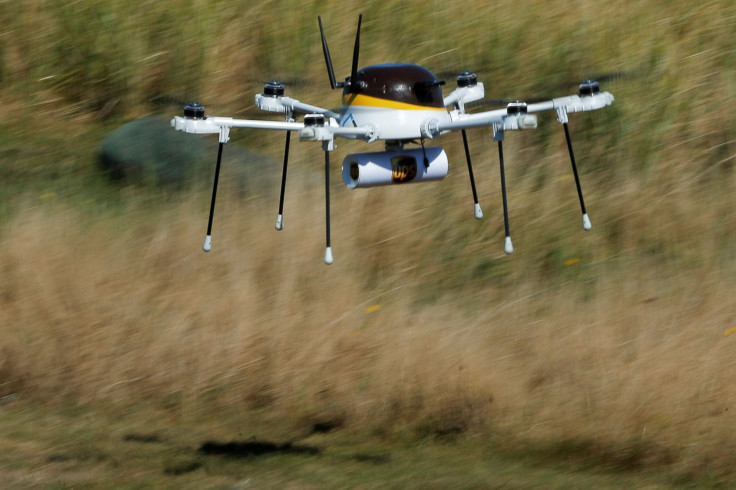Google (GOOGL) News: Parent Company Alphabet Trims Project Wing, Ends Drone Talks With Starbucks

If you were dreaming of having your next grande no-whip soy latte delivered by drone, you can forget about it. Project Wing’s wings were clipped by Google parent Alphabet as it tightens budgets across the board, Bloomberg reported Tuesday, quoting people familiar with the decision.
Bloomberg said the decision to end the proposed venture with Starbucks followed the departure of project leader Dave Vos, who has not been replaced. Hiring also was frozen, and some people were urged to seek employment elsewhere in the company, Bloomberg reported.
The Alphabet decision comes as other companies are ramping up drone programs despite a lack of Federal Aviation Administration approval for deliveries outside test zones. Amazon chief Jeff Bezos said recently tests currently underway in the United Kingdom show his company’s drones can fly 50 mph, navigate and land by themselves, and have a 20-mile range when delivering packages of 5 pounds or less.
The White House in August backed development of unmanned aerial vehicle delivery. Alphabet announced an agreement with Chipotle Mexican Grill to deliver food via drone at Virginia Tech in September. Google had wanted to deliver healthcare items by drone, including medication and defibrillators, but those plans were scrapped.
Bloomberg said the Starbucks deal had been in advanced talks but failed amid disagreements about access to customer data. Talks also reportedly were underway in Ireland to provide suburban grocery delivery.
A major obstacle to implementation of drone delivery programs in the United States are FAA rules that prohibit companies from making deliveries outside the line of sight of operators. The FAA said it has received 854 waiver applications for drones weighing no more than 55 pounds. Of those, 71 waiver requests had been rejected and 36 approved, Law360 reported.
Another obstacle is the lack of sense-and-avoid technology needed to keep the UAVs from flying into, buildings and other obstacles, as well as each other. Echodyne, a Bellvue, Washington, startup announced a new cellphone-sized radar system it says is capable of detecting small aircraft 1.8 miles away no matter the weather conditions.
© Copyright IBTimes 2024. All rights reserved.












